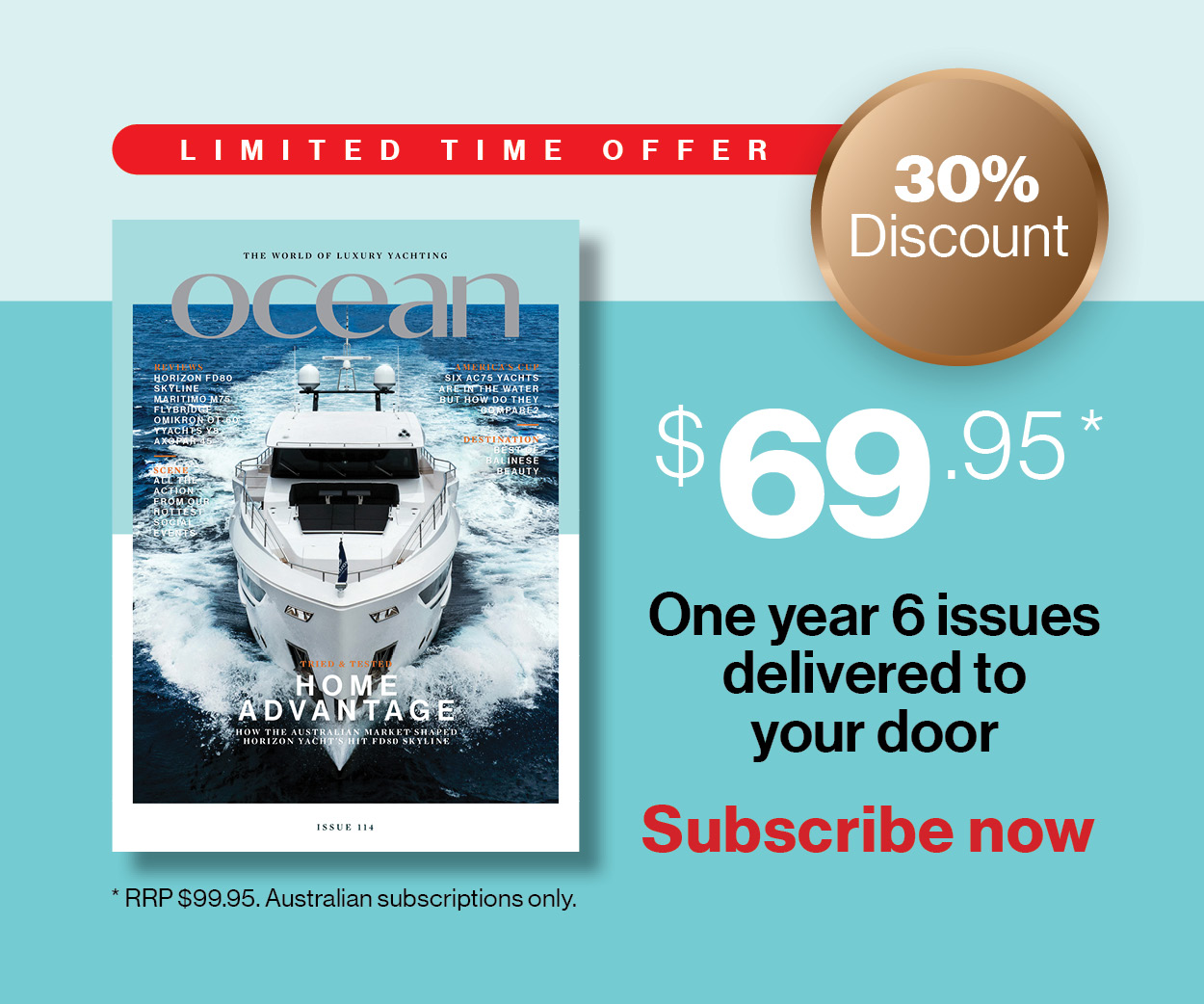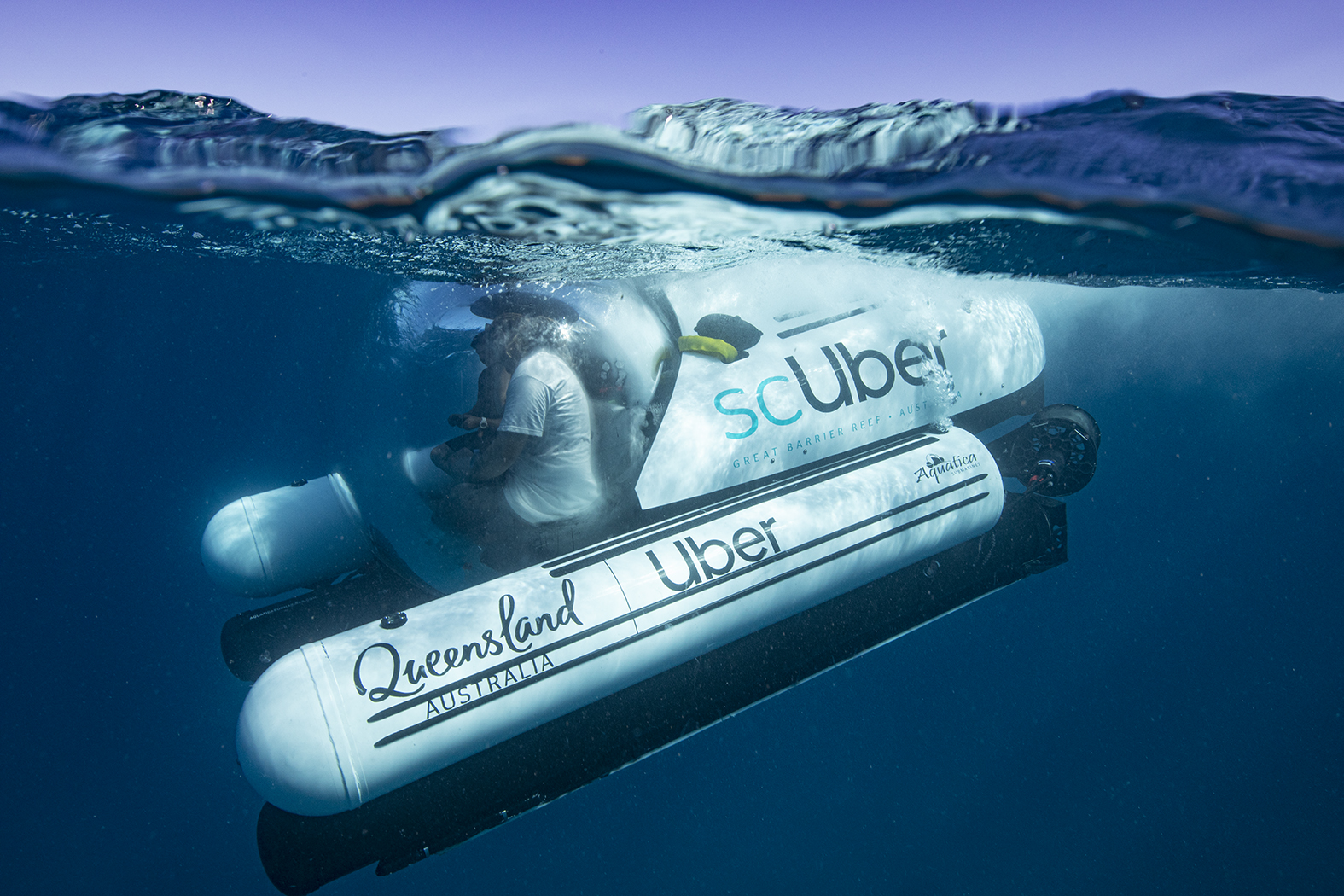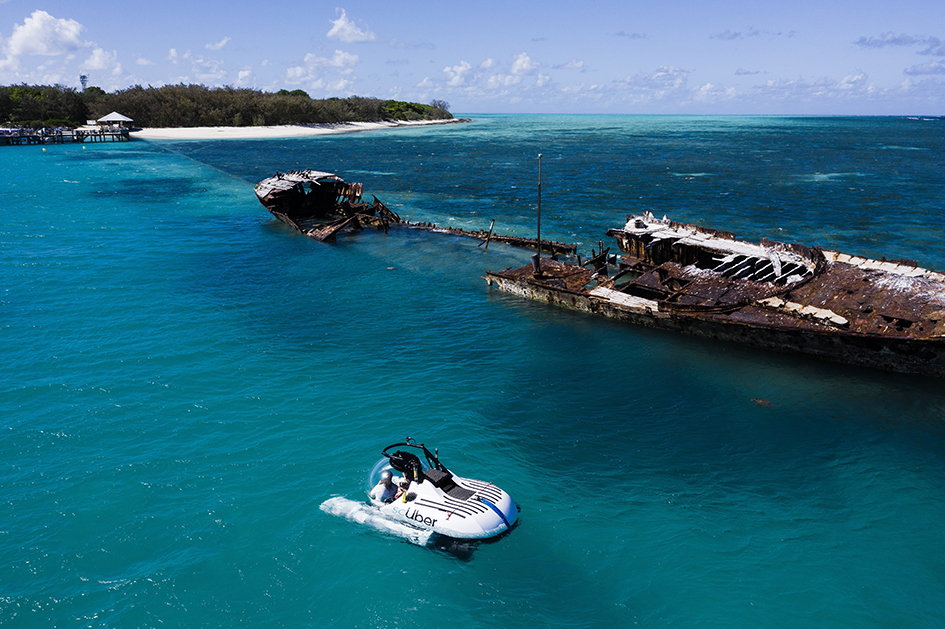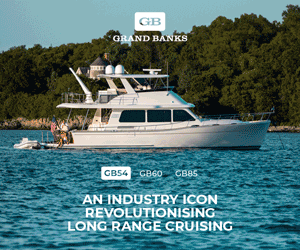Deeply moving
Queensland has teamed up with Uber to launch scUber, the world’s first rideshare submarine experience on the Great Barrier Reef.
Photography by Tourism and Events Queensland
03 June 2019
This once-in-a-lifetime experience will offer riders an unfiltered lens to Australia’s underwater icon.
For a limited time only, scUber riders will gain exclusive access to the world’s largest ecosystem, renowned as a biodiverse playground, rich in marine life and offering remarkable underwater experiences.
From 27 May, scUber will be available for a limited number of riders to request through the Uber app and riders will have the opportunity to immerse themselves in the exquisite beauty of the Great Barrier Reef – all without the need for a snorkeling mask or a diving license!
Tourism and Events Queensland’s Chief Executive Officer, Leanne Coddington, commented on the significance of Queensland’s partnership with Uber in helping put the spotlight back on the reef.
“In late 2018, consumer research identified that exploring the Great Barrier Reef in a submarine was the most desired future travel experience sought by visitors. scUber makes this wish a reality and reaffirms Queensland tourism’s commitment to providing locals and visitors alike with truly remarkable ways to explore nature’s wonderland.
“We’re thrilled to partner with Uber to showcase the beauty of the reef through this innovative experience. In addition, we’re giving several adventure seeking travellers from around the globe, the chance to win a scUber experience for two as part of a global travel competition launched today.”
Susan Anderson, Regional General Manager of Uber, Australia and New Zealand, commented on the importance of this innovative first for the Reef: “Uber is committed to harnessing the power of technology for good. We are proud to partner with Queensland to help showcase the Reef to the world with the launch of scUber.”
“At Uber, we believe good things happen when people move – whether that’s by getting people from A to B in their city, or by making dreams come true experiencing the world’s greatest natural wonder, the Great Barrier Reef,” Mrs Anderson said.
“We’re looking forward to seeing how visitors to the Great Barrier Reef embrace this new form of movement and become advocates of the Reef for years to come.”
The scUber experience will be available starting on Heron Island, off the coast of Gladstone in the Southern Great Barrier Reef region from May 27, before moving to Agincourt Reef off the coast of Port Douglas in Cairns and the Great Barrier Reef region from June 9.
The scUber experience will cost AUD$3,000 for two riders and includes: pickup from your location with the Uber app; Return scenic helicopter ride to either Heron Island (for riders requesting from Gladstone) or the Quicksilver Cruises pontoon off the coast of Port Douglas (for riders requesting from Cairns, Port Douglas and Palm Cove); One hour ride in a scUber submarine; Return trip back to your original pickup address with Uber.
This initiative also marks the beginning of Uber’s partnership with Citizens of the Great Barrier Reef. The organisation is committed to engaging the world in the protection and conservation of the Great Barrier Reef and reefs all over the world, using tech, data and a collaborative approach to conservation.
Uber’s partnership with Citizens will focus on supporting several initiatives including their Reef Tracks program and the Great Reef Census through a financial and resource investment program.
Greater than 69 million football fields in size, the Great Barrier Reef is the world’s largest and longest coral reef system and is home to 600 different types of coral (one third of the world’s coral species), approximately 1,625 species of fish and more than 1,000 islands. Tourism to the Great Barrier Reef is significant, with almost three million tourists visiting the World Heritage Area every year. Around 80 percent of all tourism activity occurs within 7 percent of the Great Barrier Reef marine park.









